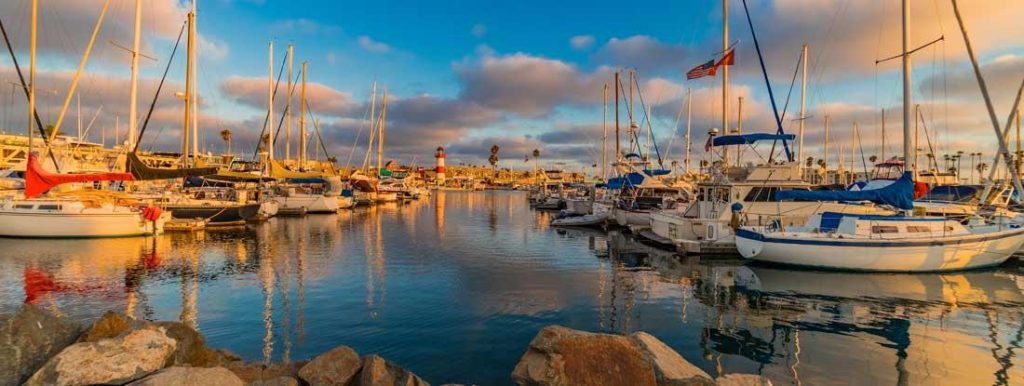When it comes to boating, safety and preparedness go hand in hand. While most boat owners focus on navigating open waters carefully, accidents can also happen right in the marina—whether it’s a collision with another vessel, damage from a dock, or unforeseen incidents while your boat is moored. This brings up an important question: does your boat insurance cover marina accidents? Understanding the scope of your coverage is crucial to avoid unexpected expenses and ensure you’re fully protected. In this article, we’ll break down what marina accidents typically entail, how boat insurance policies address them, and key factors you should consider to keep your investment safe both on and off the water.
Table of Contents
- Understanding Marina Accidents and Common Causes of Damage
- How Boat Insurance Policies Typically Address Marina-Related Incidents
- Key Exclusions and Limitations to Watch for in Your Coverage
- Tips for Ensuring Comprehensive Protection While Docked at a Marina
- Future Outlook
Understanding Marina Accidents and Common Causes of Damage
Marina accidents often arise from a combination of environmental factors, human error, and mechanical issues. Navigating tight docks and crowded slips increases the risk of collisions with other vessels or stationary objects. Unexpected shifts in weather, like sudden gusts of wind or strong currents, can cause boats to bump against pilings or neighboring boats. Additionally, improper mooring or securing practices frequently result in damage due to boats banging against marina infrastructure during tides or storms.
Common causes of damage in marinas include:
- Docking mishaps, such as scraping or crashing into piers
- Equipment failure, including faulty cleats or lines snapping
- Vandalism or theft-related damage while unattended
- Environmental wear and tear accelerated by saltwater exposure
- Accidental collisions prompted by inexperienced operators
How Boat Insurance Policies Typically Address Marina-Related Incidents
When it comes to incidents occurring within marina premises, most boat insurance policies extend coverage to protect boat owners from a variety of risks. Typically, this includes damage caused by collisions with docks, other vessels, or marina structures, as well as theft and vandalism while your boat is moored. It’s important to note, however, that coverage specifics can vary widely depending on the insurer and policy type. For example, some policies will cover damage caused by environmental factors like sudden storms or flooding within the marina, while others might exclude these events or require additional endorsements.
Common elements typically covered under marina-related incidents include:
- Collision damage while docking or mooring
- Theft or malicious damage when boat is unattended
- Damage from fire or explosion within marina confines
- Liability in case of injury or damage to third parties on marina property
Understanding these inclusions helps in choosing the right policy that offers comprehensive protection. It’s equally vital to clarify any deductibles or limits that apply specifically to marina incidents, ensuring you’re prepared and adequately covered for these unique circumstances.
Key Exclusions and Limitations to Watch for in Your Coverage
When reviewing your boat insurance policy, it’s crucial to identify what incidents related to marina accidents might not be covered. Many standard policies exclude damages caused by improper use of marina equipment, such as accidents during fueling, or damages sustained while the boat is out of the water for maintenance. Additionally, wear and tear or environmental damage like corrosion and mold often fall outside the scope of coverage, which means you could be left footing the bill for repairs if these arise during a marina stay.
Other common policy limitations include exclusions around dock or slip rental liabilities, which means damage to marina property caused by your vessel may not be insured. It’s also important to check if your plan limits coverage on stored boats or has restrictions related to mooring and unattended vessels. Being aware of these key exclusions helps avoid unwanted surprises. Always ask your insurer for a detailed breakdown, and consider adding specific endorsements or riders that enhance protection for marina-related risks.
Tips for Ensuring Comprehensive Protection While Docked at a Marina
When your boat is docked at a marina, it’s important to take proactive steps to safeguard your investment beyond just having insurance. Start by conducting a thorough inspection of the dock and your vessel’s mooring lines. Ensure that the cleats, fenders, and dock pilings are well-maintained and appropriately positioned to minimize abrasion and impact risks. Utilize chafe guards on lines to prevent wear and regularly check that all knots are secure, especially during adverse weather. Consider installing additional security measures like motion-sensor lights or surveillance cameras to deter theft and vandalism, as marina spaces are often public or semi-public environments.
Additionally, communication with marina management is key. Confirm that your insurance covers marina-specific risks such as damage caused by other boats, dock equipment failures, or marina flooding. Many policies require reporting incidents through proper channels within specific time frames to maintain coverage validity. Maintain an inventory of onboard equipment and document your boat’s condition with photos or video regularly. This documentation will be invaluable in the event of a claim. Finally, always double-check marina rules and local regulations – some marinas impose specific requirements or restrictions that can impact your liability and coverage.
Future Outlook
In conclusion, understanding whether your boat insurance covers marina accidents is essential for every boat owner. While many policies do offer some level of protection, coverage can vary significantly depending on your insurer and the specific circumstances of the incident. To avoid unexpected expenses and ensure peace of mind, take the time to carefully review your policy, ask questions, and consider additional riders or endorsements if necessary. Remember, staying informed and prepared is the best way to navigate the waters safely—both on and off the boat.





